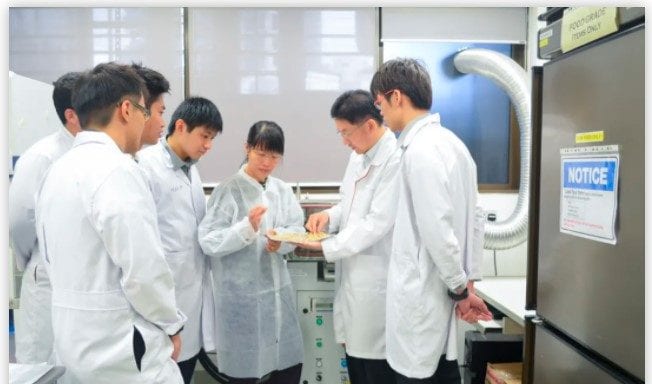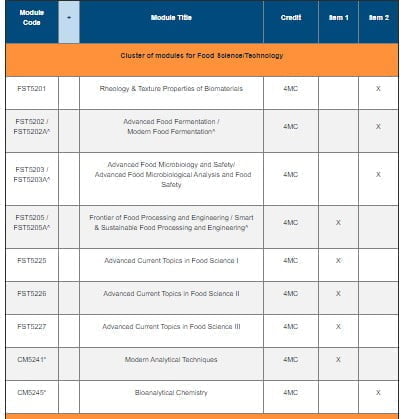The National University of Singapore Master of Science in Food Science and Human Nutrition | Developing Foods for the Future
The National University of Singapore Master of Science in Food Science and Human Nutrition | Developing Foods for the Future

The Master of Science in Food Science and Human Nutrition programme is accepting applications for the August 2021 intake until 1 March 2021.

Professor ZHOU Weibiao
Academic Director
Master of Science in Food Science and Human Nutrition Programme
National University of Singapore
The food manufacturing sector in Singapore has an annual turnover of more than S$10 billion, and is one of the most important and critical sectors in the nation’s fast-growing economy. Moving into the 21st century and beyond, the sector has identified a need for highly competent talent. The Department of Food Science and Technology (FST) at the National University of Singapore (NUS) aims to answer this need through programmes like the Master of Science (MSc) in Food Science and Human Nutrition.
FST launched the first food science and technology degree course in Singapore in 1999, and our current range of degree courses include a three-year Bachelor of Science, a four-year Bachelor of Science with Honours, a Master of Science by coursework, a Master of Science by research and a doctorate by research. We enjoy strong support from both government bodies and the industry. Our graduates are in great demand, boasting one of the highest employment rates among the University’s graduates across all courses.
Faculty members in FST strive to excel in teaching and research to make the Department a centre of excellence in food science and technology. Apart from training graduates so that they can contribute to and become leaders in the industry, the faculty also conduct high-quality research of international impact.
Large-scale collaborative research projects have been conducted with both multinational companies and small-to-medium enterprises such as Nestle, Kikkoman, Givaudan, Firmenich and KH Roberts. These collaborative projects encompass a variety of frontier research topics (e.g. new functional ingredients, innovative new products from plant-based proteins, sugar reduction and alternatives, food waste valorisation, nutrition for ageing population), which help to meet health needs and evolving consumer preferences.
The strong entrepreneurial spirit of NUS FST family is reflected in the number of start-ups established by our graduates, research students, research fellows and faculty members.
We encourage potential students, both undergraduate and postgraduate, to explore the various sections of our upgraded website at https://www.fst.nus.edu.sg/ to learn more about the prospects of becoming food scientists and food technologists, the NUS FST syllabus, facilities, and research activities and opportunities.
Our colleagues from the food and related industries and organisations can find out more about the diverse research interests and expertise of our faculty, which cover almost all major fields of the food science and technology discipline. Contact us to discuss any ideas you may have for collaboration opportunities.
For alumni, this website serves as a valuable information centre. Get updates on alumni events and learn about the activities and latest development at “home”. We look forward to receiving news and suggestions from you.
We hope the information provided on our upgraded website helps you may find out why FST courses are among the most popular in the Faculty of Science.
The MSc in Food Science and Human Nutrition (by coursework) is a comprehensive programme designed to better prepare students for the workforce amid the rapidly changing food landscape.
Through this programme, you will:



▲ Curriculum
MODE OF STUDY
GRADUATION REQUIREMENTS
To graduate, a student must meet all coursework and research project requirements and earn 40 MCs with the following criteria:

Minimum score of 85 (Internet-based), or
Transcript
Please obtain an official transcript from the university that you graduated from, and upload it along with your application. If necessary, you can download the following Transcript Request Form for your use:
http://www.nus.edu.sg/registrar/docs/info/graduate/Transcript-Request-Form.pdf
Other Academic Certificates
Please upload other academic documents besides the university transcript that can support your application.
TOEFL/IELTS Scores
Applicants whose mother tongue is not English or whose medium of university instruction is not English must submit official TOEFL or IELTS scores as proof of English proficiency.
